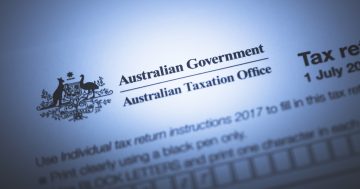 A performance report into the effectiveness of the Australian Taxation Office’s (ATO) activities to address Superannuation Guarantee (SG) non-compliance has found the Office to have been ‘partly effective’.
A performance report into the effectiveness of the Australian Taxation Office’s (ATO) activities to address Superannuation Guarantee (SG) non-compliance has found the Office to have been ‘partly effective’.
In his report Addressing Superannuation Guarantee Non-Compliance, Auditor-General Grant Hehir said the SG system was introduced in 1992 as a means of funding the retirement of individuals and prescribed a level of superannuation support to be provided by employers to employees.
“The SG system operates largely without regulatory intervention,” Mr Hehir said.
“In respect of superannuation, the ATO’s role is to encourage voluntary compliance and enforce the penalties of non‐compliance.”
He said the ATO’s risk-based SG compliance framework was partly effective.
“Although SG risks are assessed and treated, the risk rating for unpaid SG is lower than the ATO risk framework would indicate if consideration of risk to revenue was applied,” Mr Hehir said.
“Although there is a compliance strategy to shift to a more preventative approach, it is not yet supported by effective data analysis.”
He said the ATO’s compliance activities were partly effective in achieving greater employer compliance with SG obligations, but the extent of improvement was difficult to establish due to a lack of performance information.
“Although there has been an increase in the absolute amount of debt raised and funds collected, the ATO has acknowledged that it has a small influence on the net SG gap,” he said.
“Although the ATO did not fully employ its SG debt-recovery powers during 2020, in line with its suspension of other ATO-initiated compliance work during the COVID-19 pandemic, SG debt increased at a higher rate than total ATO debt in 2020–21.”
Mr Hehir made three recommendations for the ATO to implement a preventative compliance strategy, use enforcement and debt-recovery powers, and enhance reporting on performance measures.
He said the ATO agreed to two recommendations and agreed with qualification to the third, the qualified agreement regarded the recommendation to set targets for its SG performance measures to enhance performance reporting.
The Auditor-General’s Report can be accessed online at this PS News link and a 71-page printable version at this link.
The Audit team was Peter Hoefer, Kim Bond, Robyn Clark, Dr Patrick N. O’Neill, Amanda Reynolds, Peta Martyn, and Christine Chalmers.











